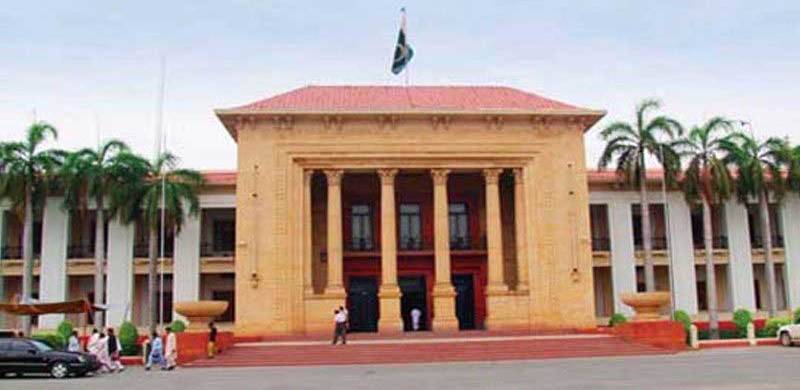
Punjab Assembly lawmakers have expressed remorse over their decision to support the Tahaffuz-e-Bunyad-e-Islam Bill, saying they voted for the bill without 'reading the draft'.
During the proceedings on Friday, the MPAs from the opposition and treasury benches withdrew their support to the bill, saying they would not endorse a document that would 'fan sectarian divides in the province'.
Pakistan Tehreek-e-Insaf (PTI) lawmakers termed it a 'conspiracy' against the government and demanded that the government amend the bill with the approval of the Federal Shariat Court.
PML-N MPA Ashraf Rasool said that the bill was passed at the behest of Shahzad Akbar, who is a prime minister's aide on accountability.
The lawmakers said that they could not condone such a documents that would direct a person which sect one should belong to. They demanded recalling and amending the bill by seeking recommendations from a committee of clerics comprising all schools of thought.
Moreover, pointing out flaws in the procedures, the PTI lawmakers argued if the bill was tabled as an official business, then cabinet's approval for the draft should be presented. And if it was a private member bill, then they demanded to know the standing committee that vetted the bill.
PPP parliamentary leader Syed Hassan Murtaza, who was a member of the committee, also disowned the bill admitting that he was part of the panel but had not been informed about its vetting process.
At this, Raja Basharat, who is the provincial law minister and the member of Pakistan Muslim League-Q, said that objections to the bill had been raised after its approval and that’s why it was not sent to the governor for signing it into law.
Last month, Punjab Assembly passed the bill that the provincial government sweeping powers to censor information by barring any publisher, editor, or translator, from printing or publishing any text that is deemed ‘un-Islamic’ or ‘objectionable’ by the government.
According to the bill, the Directorate General of Public Relations (DGPR) is empowered to visit and inspect the premises of the printing presses, offices of the publication houses and book stores. The DGPR also has the authority to refuse permission to import, print, or publish a book ‘if it is prejudicial to the national interest, culture, religious and sectarian harmony’.
During the proceedings on Friday, the MPAs from the opposition and treasury benches withdrew their support to the bill, saying they would not endorse a document that would 'fan sectarian divides in the province'.
Pakistan Tehreek-e-Insaf (PTI) lawmakers termed it a 'conspiracy' against the government and demanded that the government amend the bill with the approval of the Federal Shariat Court.
PML-N MPA Ashraf Rasool said that the bill was passed at the behest of Shahzad Akbar, who is a prime minister's aide on accountability.
The lawmakers said that they could not condone such a documents that would direct a person which sect one should belong to. They demanded recalling and amending the bill by seeking recommendations from a committee of clerics comprising all schools of thought.
Moreover, pointing out flaws in the procedures, the PTI lawmakers argued if the bill was tabled as an official business, then cabinet's approval for the draft should be presented. And if it was a private member bill, then they demanded to know the standing committee that vetted the bill.
PPP parliamentary leader Syed Hassan Murtaza, who was a member of the committee, also disowned the bill admitting that he was part of the panel but had not been informed about its vetting process.
At this, Raja Basharat, who is the provincial law minister and the member of Pakistan Muslim League-Q, said that objections to the bill had been raised after its approval and that’s why it was not sent to the governor for signing it into law.
Last month, Punjab Assembly passed the bill that the provincial government sweeping powers to censor information by barring any publisher, editor, or translator, from printing or publishing any text that is deemed ‘un-Islamic’ or ‘objectionable’ by the government.
According to the bill, the Directorate General of Public Relations (DGPR) is empowered to visit and inspect the premises of the printing presses, offices of the publication houses and book stores. The DGPR also has the authority to refuse permission to import, print, or publish a book ‘if it is prejudicial to the national interest, culture, religious and sectarian harmony’.
